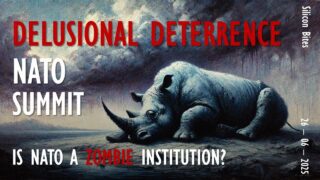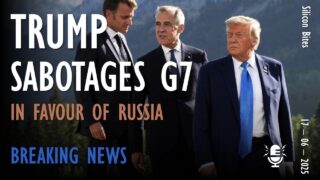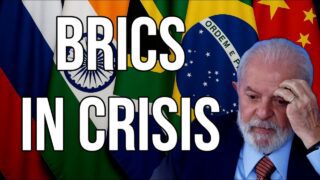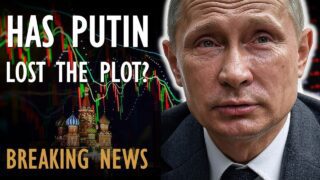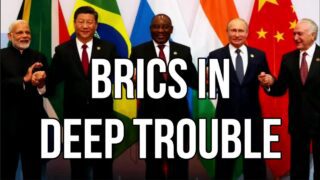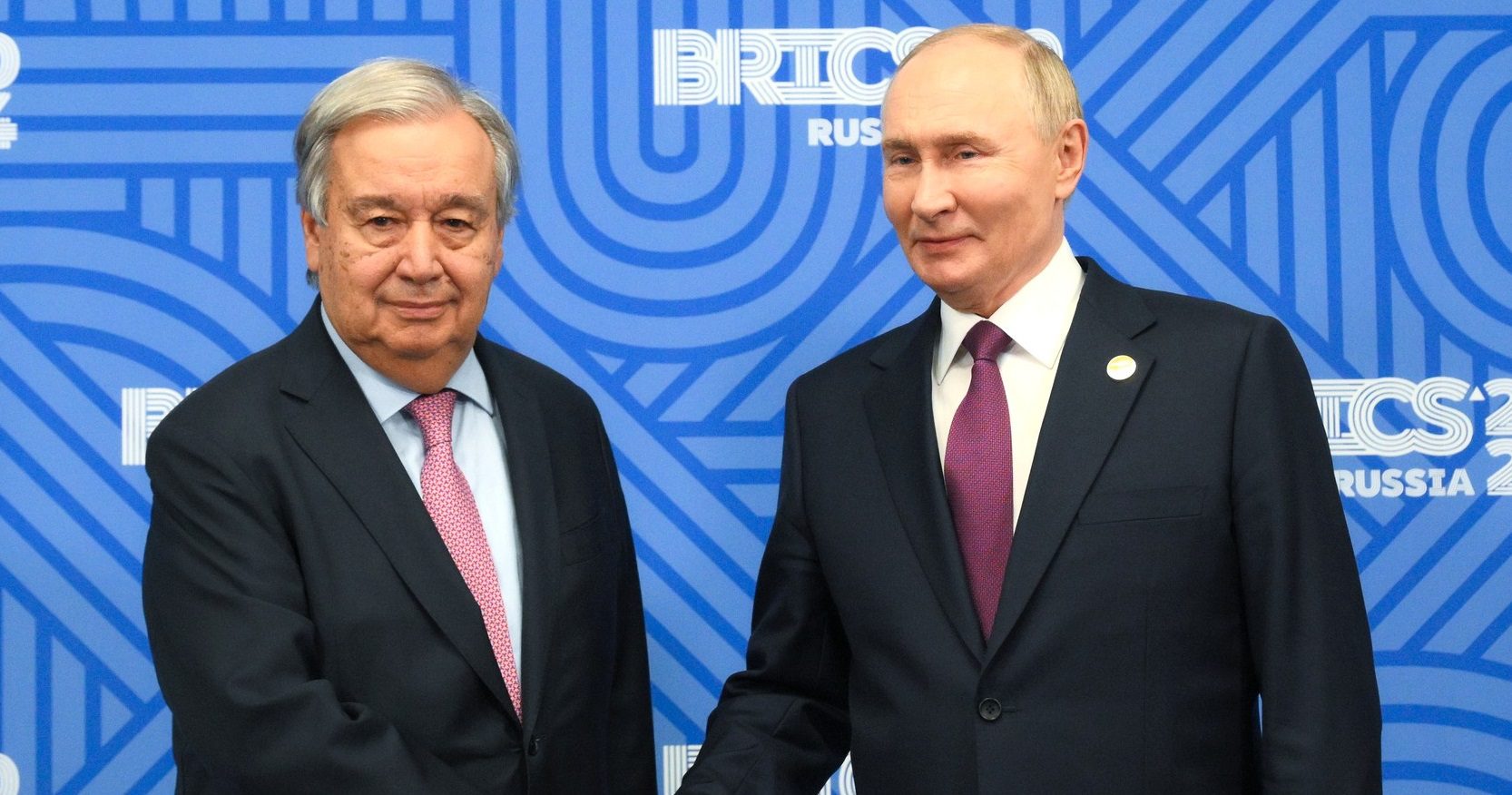
Was the UN chief brokering another Ukraine deal with Putin?
At Putin’s invitation, UN Secretary-General António Guterres’s visit to Kazan—the capital of Russia’s Tatarstan Republic—for the three-day BRICS summit has sparked international controversy. Images from the visit show telling moments.
There he is, savoring chak-chak—strips of deep-fried dough drenched in hot honey and molded into a sticky, sweet ball. Other dignitaries were offered the same traditional Tatar treat during their visits, noted Ske News, but none seemed to relish it quite like the UN’s Secretary-General, nodding appreciatively as he chewed.
There he is again, shaking hands with Putin, even offering a slight bow.
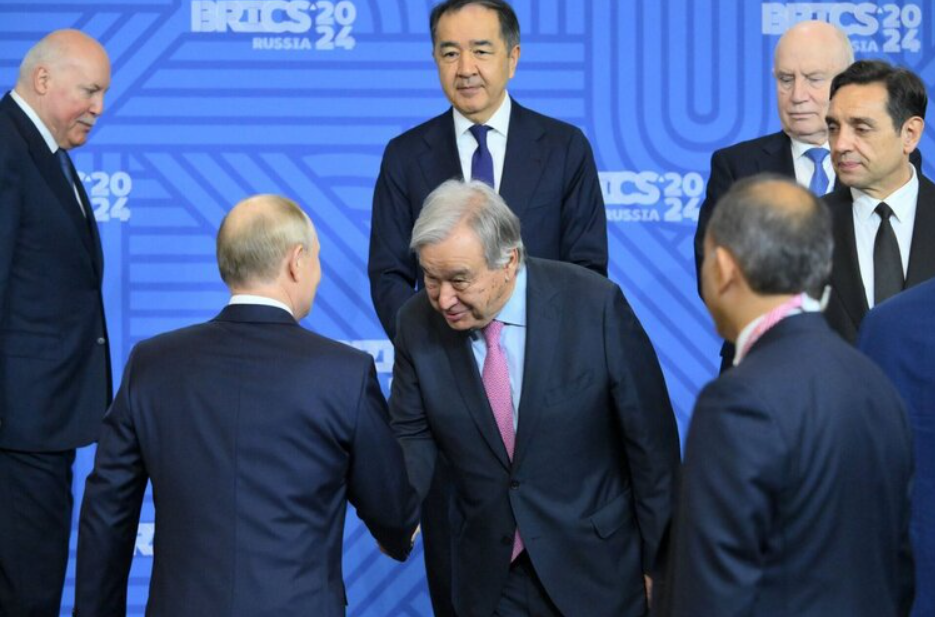
And there—António Guterres with a faint smile, listening as Putin dismissed Russia’s invasion of Ukraine as mere “family troubles.”

The optics are particularly striking given Ukraine’s ongoing struggle against Russia’s unprovoked aggression, now approaching its third year. Guterres’s engagement with Putin—while having declined to attend June’s Ukraine Peace Summit in Switzerland—has infuriated Kyiv officials, who accuse him of tacitly supporting a war criminal. While the UN defends these visits as “standard practice,” calls for action against Guterres range from declaring him persona non grata in Ukraine to demanding his resignation.
Euromaidan Press investigates what truly brought Guterres to Kazan—beyond the honey-sweetened diplomacy—and what consequences may follow.
While Ukraine burns, Putin plays host at BRICS spectacle
The 2024 BRICS summit in Kazan marked Russia’s largest international gathering since its full-scale invasion of Ukraine, bringing together 36 countries with over 20 represented by their heads of state. While Brazil’s president canceled his visit—officially due to medical advice following a head injury—the broad attendance signaled a concerning tolerance of Putin, who himself had previously skipped the G20 summit in Brazil to avoid potential arrest on International Criminal Court charges.
When founded in 2009, the alliance initially included Brazil, Russia, India, China, and South Africa. Since then, it has expanded to embrace Iran, Egypt, Ethiopia, the United Arab Emirates, and Saudi Arabia. Türkiye, Azerbaijan, and Malaysia have formally applied, and several other countries have expressed interest in joining.
The summit highlighted BRICS’ growing challenge to Western influence, with Russia pushing for an alternative international payment system to bypass sanctions. Though NATO member Türkiye has expressed interest in joining BRICS, NATO Secretary General Mark Rutte downplayed concerns, stating this wouldn’t affect Türkiye’s alliance commitments. The White House similarly dismissed the gathering as “not a threat,” despite Western media characterizing it as a signal to the West amid the war in Ukraine.

The timing proved particularly controversial, coinciding with reports of North Korean troops entering Russia to support its war effort in exchange for technological assistance. Meanwhile, documented cases of Russian executions of Ukrainian POWs exceeded 100.
Putin used the summit for high-profile bilateral meetings, demonstrating Russia’s continued global engagement despite Western isolation attempts. His discussions with Chinese President Xi Jinping emphasized their strategic partnership, while meetings with South African President Cyril Ramaphosa and Indian PM Modi focused on developing a multipolar world order and alternative trade settlements. Modi also offered peace mediation for Ukraine—notably after securing the return of 85 Indian citizens who had been “involuntarily” recruited into the Russian military, with negotiations ongoing for 20 more.
As the US-based Institute for the Study of War (ISW) assessed, Russia would use the summit “to showcase its efforts at enhancing global ties with non-Western states” while seeking ways to support its war effort and mitigate Western sanctions.
UN Chief’s cozy BRICS performance
During his Kazan visit to the BRICS summit, UN Secretary-General Guterres’ participation was explained by his Deputy Spokesman Farhan Haq as “standard practice,” adding that this aligned with his “regular participation in organizations’ meetings with numerous important member states, such as the G7 and G20.”
Haq promised that Guterres would “reaffirm his established position regarding the war in Ukraine during bilateral meetings with Putin.” This position was clear: in March 2022, the UN General Assembly demanded that “the Russian Federation immediately cease its unlawful use of force against Ukraine.”
“We need peace in Ukraine, a just peace in line with the UN Charter, international law, and General Assembly resolutions,” Guterres proclaimed at the summit, calling for “strengthening and updating the peace mechanism.”
However, his actions spoke louder than words.
While the summit produced no diplomatic breakthroughs, cameras capturedGuterres warmly engaging with both Putin and Belarus’ Lukashenko — the very leaders who orchestrated Russia’s full-scale invasion of Ukraine.
No journalistic standards can be applicable to such a surreal situation https://t.co/qLJ4evitwm
— Euromaidan Press (@EuromaidanPress) October 24, 2024
This diplomatic theater unfolded as Guterres made broad calls for “an immediate end to the fighting in Gaza, Lebanon, Ukraine, and Sudan,” yet offered no concrete steps forward.
Calls for Guterres’ removal follow Putin’s meeting
Despite the UN’s subsequent claims that such visits were “standard practice,” Guterres’ trip to Kazan was shrouded in secrecy until the last moment. Only on 21 October, one day before the summit, did Russian Presidential aide Yury Ushakov announce Putin’s planned meeting with the UN Secretary-General.
Ukraine’s Ministry of Foreign Affairs urged Guterres not to go, and when he proceeded anyway, condemned his choice.
“The UN Secretary-General declined Ukraine’s invitation to the first Global Peace Summit in Switzerland. Instead, he accepted an invitation to Kazan from war criminal Putin. This is the wrong choice that does not serve the cause of peace. It only damages the UN’s reputation,” the Ministry stated.
The criticism was particularly pointed given that Putin faces an International Criminal Court warrant, issued in March 2023, for the illegal deportation of Ukrainian civilians and children to Russia.
Ukrainian MP and PACE delegation member Oleksiy Goncharenko responded vehemently to photos of Guterres being greeted with Russian bread and Tatar treats.
“He refused to attend Ukraine’s Peace Summit, claiming he needed to remain neutral. Yet here he is at BRICS, enjoying Russian hospitality. One has to wonder if their welcome bread was baked with grain stolen from our occupied territories. The UN’s disgrace grows deeper by the day,” he wrote on X.
International condemnation quickly followed. Lithuanian Foreign Minister Gabrielius Landsbergis declared the visit “unacceptable” on X.
Swedish economist Anders Åslund went further.
“It is really impermissible that the UN Secretary-General visits a person declared wanted by the International Criminal Court,” he wrote.
He called for the West to declare Guterres persona non grata, boycott meetings with him, and remove him from his UN position.
The Telegraph was particularly scathing, condemning Guterres for “giving Putin the oxygen of respectability he craves” and calling for his replacement.
“Mr Guterres has been Secretary General for seven years, and that is long enough,” the British newspaper’s editorial stated. “He needs to be replaced if the UN is to retain any shred of credibility.”
Peace talks or photo op? Guterres’ strange BRICS mission
While the Kremlin hailed the summit as “the largest foreign policy event ever held” by Russia, with The New York Times noting Putin’s successful self-portrayal as a respected leader, the summit’s outcomes were mixed.
In the 43-page final communiqué, Ukraine merited just a single mention. The carefully worded statement merely “recalled national positions” on Ukraine and emphasized UN Charter principles, prompting Ukraine’s Foreign Ministry to declare a diplomatic victory.
“Russia failed to ‘export’ its neo-imperialist views to BRICS participants,” the Ministry stated, noting Moscow’s inability to rally the Global South behind its position.
Yet the declaration’s broader implications raised Western concerns. Beyond criticizing “illegal sanctions”—a clear reference to Western measures against Russia—the document outlined ambitious plans to reshape the global economic order through new financial architectures, a BRICS Grain Exchange, alternative payment systems, and increased use of local currencies in cross-border trades.
Against this backdrop, UN Secretary-General Guterres’ presence—as the sole Western figure and former Portuguese Prime Minister—at this Moscow-centered event raised questions. Why attend and patiently endure criticism from Russia and Iran, effectively normalizing violations of international law through his presence?
“The UN requires reforms to better reflect the 21st centuries realities”
On #UNDay2024, the ICC-wanted Russian ruler Putin delivered a lecture to UN chief Antonio Guterres on how to manage the organisation whose Charter his state violated almost in full
This is UN today pic.twitter.com/JcfUe7AhjG
— Euromaidan Press (@EuromaidanPress) October 24, 2024
Sky News suggested deeper motives, hinting at possible peace talks: “Guterres’s presence hints that something’s afoot and Moscow could be more open to a peace agreement with Ukraine.” The outlet cited Reuters’ reports of growing ceasefire discussions and recalled Guterres’ success in brokering the 2022 Ukraine grain deal.
“You’d think there must be a reason he’s come all this way and incurred Ukraine’s wrath, other than for the chak-chak,” Sky News observed, noting Brussels’ trust in his mission.
However, with Türkiye, India, and Austria already offering to mediate, Guterres’ visit appeared more like an attempt to normalize meetings with Putin than advance peace. The Telegraph called it “a shocking step backward,” while Germany’s TAZ was blunter, accusing him of “betraying the West” at what they termed “Putin’s show.”
****
Following the BRICS summit, several Western and Ukrainian media outlets reported that President Zelenskyy declined UN Secretary-General António Guterres’s visit to Ukraine due to Guterres’s trip to Kazan, Russia. However, the UN has not confirmed any cancellations.
“We are working to arrange a visit at a mutually convenient time,” Farhan Haq, Deputy Spokesperson for the Secretary-General, told Suspilne.
AFP cited an unnamed Zelenskyy’s Office representative who called Guterres’s visit to Kazan “a degradation of common sense and international law.”
Ukraine’s Permanent Representative to the UN, Serhiy Kyslytsya, also condemned the visit, citing UN guidelines that warn against meetings with individuals under ICC arrest warrants like Putin, as these encounters can undermine the Court’s authority.

While the UN frames this as diplomatic outreach, the meeting in Kazan appears to have run counter to the organization’s own established protocols.
Read more:



